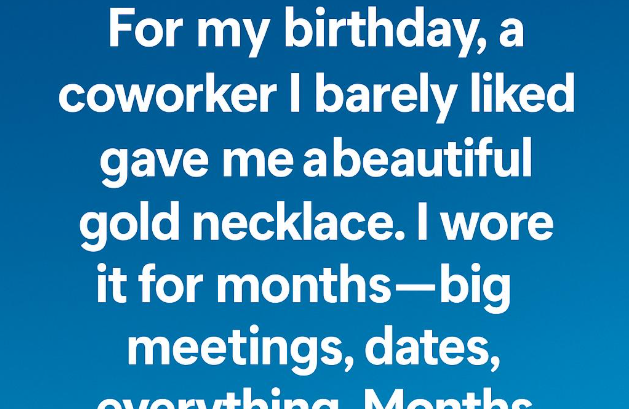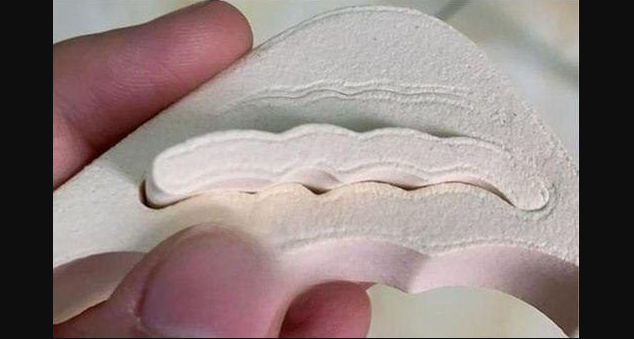Last year, for my birthday, a colleague I barely knew, Jenna, presented me with a stunning gold necklace. Our interactions were minimal, so her thoughtful gesture warmed my heart. I began wearing the necklace everywhere—to the office, dinners with friends, and even on dates. It quickly became my cherished accessory, and whenever someone admired it, I’d beam with pride and share, “A coworker gave it to me.”
A few months later, while polishing the necklace, I discovered a small inscription on the back: “Office Joke.” Puzzled, I brought it up casually at work the following day. My colleagues exchanged uneasy looks until one finally revealed the truth: the necklace was part of a longstanding “office tradition,” a playful prank given to someone they thought wouldn’t stay long at the company.
Shock and embarrassment washed over me. I had been proudly wearing what I believed was a heartfelt gift, unaware it was a lighthearted jab at my expense. Determined not to let it define me, I wore the necklace boldly to our next team meeting. As everyone took their seats, I stood and declared, “I’ve learned about the ‘office joke.’ Since I’m obviously here for the long haul, I’m claiming this as my lucky charm.”
A hush fell over the room, followed by a few nervous chuckles. The prank was never brought up again, and Jenna later offered a sincere apology in private. Today, I continue to wear the necklace—not as a symbol of the prank, but as a testament to my ability to transform a painful moment into a tale of strength. When people compliment it now, I smile warmly and say, “Thank you. It carries quite a story.”






